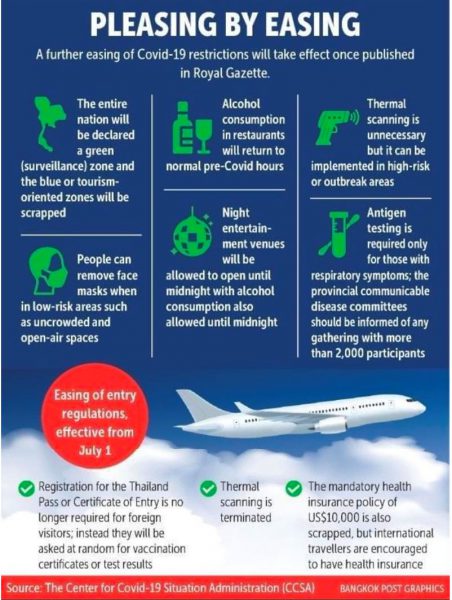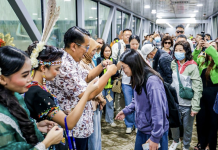BANGKOK, 20 June 2022: The last hurdles hindering Thailand’s tourism recovery will go 1 July after Thailand’s Centre of Covid-19 Situation Administration (CCSA) confirmed it signed off on abolishing the remaining Covid-19 entry restrictions at the weekend.
CCSA rulings will still need to be published in the Royal Gazette before they become law, but that is expected soon.

According to the CCSA announcement, travellers heading for Thailand will no longer need to register on the Thailand Pass App starting 1 July. If they have been vaccinated against Covid-19, they can enter Thailand freely without needing health insurance. Up until now, the minimum insurance stood at USD10,000. That goes out of the window on 1 July along with the Thailand Pass requirement. The Thailand Pass and insurance requirement ended for Thai citizens on 1 June.
From 1 July 2022, foreign nationals are only required to show proof of either a certificate of vaccination or a negative RT-PCR or professional ATK test result within 72 hours of travel. Travellers can present evidence of the tests in print or digital format. Random checks will be made on arrivals at Thailand’s international airports or land border checkpoints.
Mask-wearing rules will also be eased, making them mandatory in just crowded indoor areas or for mass gatherings. They will not be required outdoors or in public places that are well ventilated. Clarification is still required on whether domestic airline passengers will still be required to wear masks during flights or whether commuters will be required to wear masks when boarding MRT and Skytrain services in Bangkok.
The CCSA also reassessed the Covid-19 risks in Bangkok and 76 provinces, designating them to the surveillance only or green zone, which allows normal businesses and activities nationwide, including the return to a 2400 closing hour rule for nightclubs and bars. The ban on serving alcoholic drinks from 1400 to 1700 daily, a pre-Covid-19 rule, will no longer apply to hotels serving tourists. However, provincial governors have the power to include restaurants outside of hotels in the new drinking hours if they believe it benefits the province’s economy.






